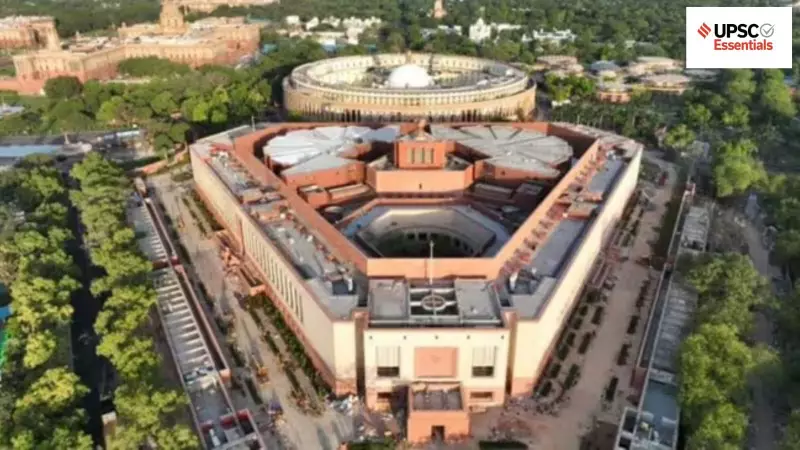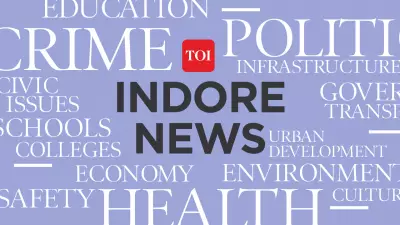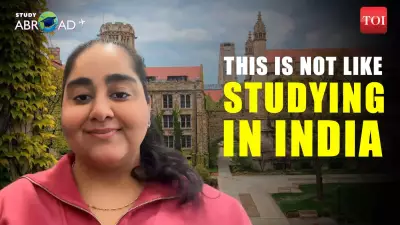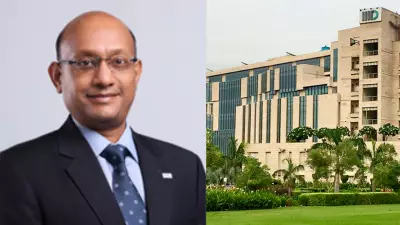
Boost Your UPSC Preparation with Essential Polity and Governance Quiz
Are you gearing up for the UPSC Civil Services Examination 2026 Prelims? The Indian Express brings you an invaluable daily subject-wise quiz initiative designed to help aspirants revise crucial topics from the static portion of the syllabus. Today's focus on Polity and Governance covers fundamental concepts that every serious candidate must master.
Key Questions and Detailed Explanations
Question 1: Understanding Parliament Sessions
Consider these statements about sessions of Parliament: First, there is a fixed schedule in the Constitution for Parliament sessions in India. Second, the Winter Session is the biggest and most important session of the Indian Parliament. Which statements are correct?
The correct answer is neither statement is accurate. Here's why: Recent announcements by Union Parliamentary Affairs Minister Kiren Rijiju about the Winter Session running from December 1 to 19 for 15 working days faced opposition criticism for being unusually delayed and shortened. Importantly, the Indian Constitution does not mandate a fixed schedule for Parliament sessions. By established convention, Parliament convenes for three sessions annually. Contrary to the second statement, the Budget Session holds the distinction of being the longest and most significant parliamentary session, typically stretching from February to May.
Question 2: State Election Commission Responsibilities
What functions fall under the State Election Commission's jurisdiction? The options include elections to Municipalities, Panchayats, Municipal Corporations, and District Councils.
The correct answer encompasses elections to Municipalities, Panchayats, and Municipal Corporations. The State Election Commission derives its authority from Article 243K of the Constitution, which grants it superintendence, direction, and control over electoral roll preparation and conduct of all Municipality elections. Similarly, for Panchayat elections, the SEC holds equivalent powers. Municipal Corporations fall under the broader category of Municipalities. However, District Councils in tribal areas of Assam, Meghalaya, Tripura, and Mizoram operate under different election mechanisms governed by state legislation or Sixth Schedule provisions.
Question 3: Original Constitution Features
Which statements accurately describe the original Constitution? The options discuss article count, preamble existence, implementation date, and part divisions.
The accurate statements indicate that the original Constitution comprised 395 Articles and was organized into 22 parts. Importantly, the Constitution did include a Preamble from its inception, contrary to what some might believe. The historical implementation date was January 26, 1950, not November 26, 1949. This chosen date commemorated the Purna Swaraj day first observed on January 26, 1930, marking a significant moment in India's independence movement.
Public Accounts Committee and Fundamental Rights
Question 4: Committee on Public Accounts History
This question tests knowledge about the Public Accounts Committee's establishment, historical leadership, constitution frequency, and membership composition.
Only two statements prove correct. The Committee on Public Accounts was indeed first established in 1921 following the Montague-Chelmsford Reforms. During the Interim Government period, the Finance Minister served as Committee Chairman, a practice that continued post-Independence until changes were implemented. However, the Public Accounts Committee is now constituted annually under Rule 308 of the Rules of Procedure and Conduct of Business in Lok Sabha, not every second year. The membership comprises maximum 22 members, with 15 elected from Lok Sabha and up to 7 from Rajya Sabha, not exclusively from Lok Sabha as suggested.
Question 5: Fundamental Rights of Citizens
Which rights are guaranteed to all citizens under the Constitution? The options include freedom of speech, peaceful assembly, bearing arms, tax refusal, association formation, and free movement.
The correct combination includes freedom of speech and expression, peaceful assembly without arms, forming associations or unions, and free movement throughout India. These rights find their foundation in Article 19 of the Indian Constitution. Notably, the right to bear arms for self-defense and refusing to pay taxes as protest methods do not constitute fundamental rights under Indian constitutional framework.
Essential UPSC Preparation Resources
The UPSC Essentials initiative provides comprehensive study materials, including subject-specific quizzes covering History, Culture, Social Issues, Science and Technology, Economy, Environment, Geography, and International Relations. Aspirants can access the UPSC Essentials magazine for October 2025 and subscribe to specialized UPSC newsletters for regular updates. Additional resources include Telegram channels and social media platforms offering current affairs analysis and examination guidance.
This quiz series represents an excellent opportunity for UPSC 2026 aspirants to regularly assess their preparation level, identify knowledge gaps, and strengthen their understanding of critical Polity and Governance concepts that frequently appear in the examination.





